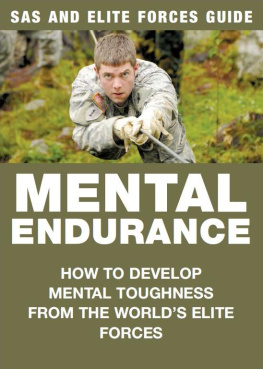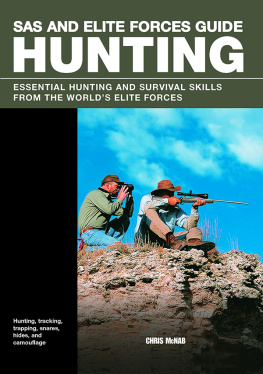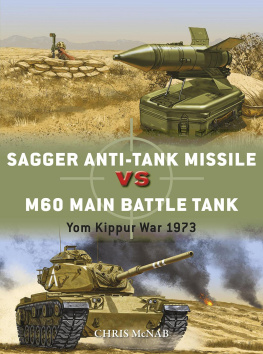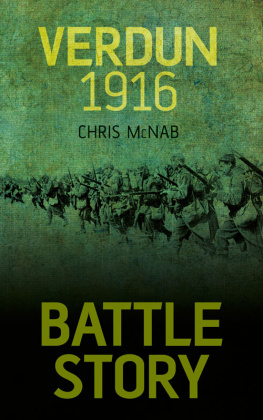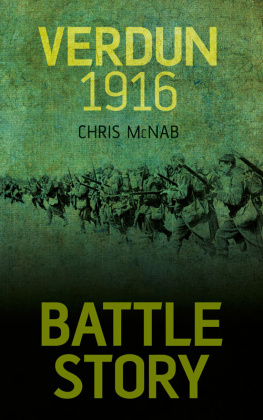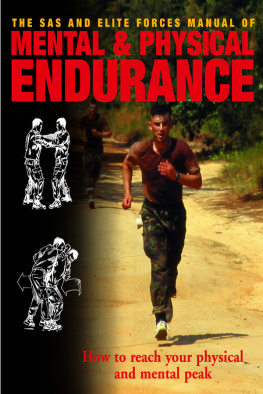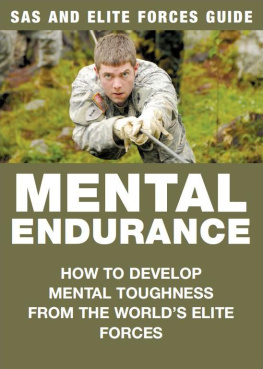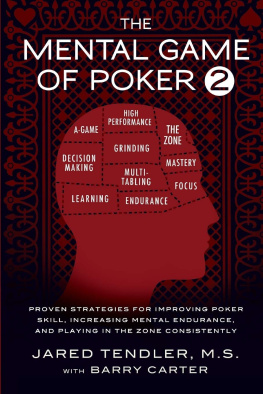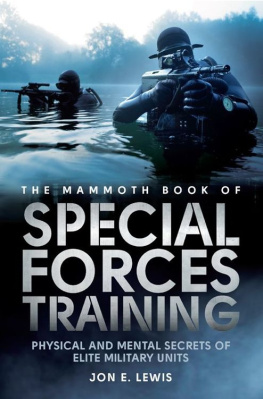SAS AND ELITE FORCES GUIDE
MENTAL
ENDURANCE
HOW TO DEVELOP MENTAL TOUGHNESS
FROM THE WORLDS ELITE FORCES
CHRIS MCNAB

This digital edition first published in 2014
Published by
Amber Books Ltd
7477 White Lion Street
London N1 9PF
United Kingdom
Website: www.amberbooks.co.uk
Appstore: itunes.com/apps/amberbooksltd
Facebook: www.facebook.com/amberbooks
Twitter:
Copyright 2014 Amber Books Ltd
ISBN: 978-1-909160-70-5
PICTURE CREDITS
Illustrations: Tony Randell ( Amber Books Ltd)
All rights reserved. With the exception of quoting brief passages for the purpose of review no part of this publication may be reproduced without prior written permission from the publisher. The information in this book is true and complete to the best of our knowledge. All recommendations are made without any guarantee on the part of the author or publisher, who also disclaim any liability incurred in connection with the use of this data or specific details.
DISCLAIMER
This book is for information purposes only. Readers should be aware of the legal position in their country of residence before practicing any of the techniques described in this book. Neither the author or the publisher can accept responsibility for any loss, injury, or damage caused as a result of the use of the techniques described in this book, nor for any prosecutions or proceedings brought or instigated against any person or body that may result from using these techniques.

www.amberbooks.co.uk
CONTENTS

From keeping the peace in active war zones to escaping enemy fire, military service requires a mental toughness that enables soldiers to perform at their best under all circumstances.
1
Above all, soldiers, sailors, airmen and marines need to possess mental endurance if they are to survive the experience of military service.
What It Takes
W hen men and women are recruited into the armed services, they enter a profession unlike any other, with the very real prospect that one day they might experience the violence and chaos of combat. From the outset, therefore, they have to exhibit mental toughness, self-discipline and a warrior spirit.
Youve never lived until youve almost died. For those who fight for it, life has a meaning the protected will never know.
This now-famous quotation was a popular saying in the Studies and Operations Group (SOG), the Special Forces units that operated deep within enemy territory during the Vietnam War. In many ways it encapsulates the profound distinction between civilian and military life. In the civilian world, the greatest mental challenges tend to come from the realms of work, money, health and family. Violence, by contrast, is generally an incidental and irregular occurrence, and one that can often be avoided by the simplest of safety precautions. (There are of course some troubled parts of the world that are unfortunate exceptions to this rule.)
Warrior Spirit
Combat is an intense experience both psychologically and physically. Here a soldier survives the blast of a nearby artillery explosion; exposure to prolonged shellfire has historically been a leading cause of post-traumatic stress disorder, even amongst elite troops.

For the soldier, airman, marine or sailor, however, violence can be encountered indeed, sought out on a scale or intensity that is almost unimaginable to any civilian who has not lived through a war itself. The experiences of combat present sights, sounds and sensations of unique force bullets splitting the air with a supersonic crack; explosions demolishing entire buildings with a single enormous blast; directing devastating air strikes with just a GPS designator and a radio; mutilations of almost fantastic horror; the violent deaths of friends, sometimes in large numbers; the misery of observing civilian families caught in the crossfire; the shock of killing another human being. Such experiences cannot but have a powerful effect on the human psyche.
Security Duties
A US Army patrol performs routine security duties at a checkpoint in Iraq. The psychological challenge for the men is to remain vigilant for long periods under sustained levels of threat, with each soldier taking responsibility for a particular aspect or sector of group protection.

Yet even in peacetime, the demands of military service are quite distinct. Soldiers have to endure hard training regimes, some of which would test professional athletes to their limits. They have to comply with harsh discipline, curtailed sleep, an often-unimaginative diet and a culture with a generally intolerant attitude towards weakness. They also have to be organized, smart and respectful of authority, articulate in communication and able to perform their duties with efficiency and intelligence.
Comradeship
Military service deliberately promotes comradeship and a sense of belonging. Shared experiences can unite individuals and improve unit cohesion under fire.

Making the Grade
We expect a lot of those we put in uniform, and not everyone is cut out for this service. Typical failure rates for those attempting to pass basic training in a regular infantry regiment can be in the region of 2030 per cent. If we look at those who attempt to join the Special Forces, such as the Special Air Service (SAS) or US Navy SEALs, then the failure rates spiral upwards to the region of 7590 per cent. Physical limitations are often a cause of drop-outs, but a significant proportion are sent home or back to their original units because they didnt quite exhibit the right mental requirements.
Basic Training
Basic training aims to prepare recruits for military life by combining physical and mental trials. On route marches such as these, the soldier needs mentally to compartmentalize the discomforts of heavy loads and focus on the job in hand.

In mass conscript armies, such as those recruited during the world wars or in many of the pre-20th-century conflicts, the psychological profile of the individual soldier was not necessarily an impediment to joining up during moments of genuine national crisis, every man who can be put into the field is of use. In modern professional armies, by contrast, selectivity can be put into play. Those who attempt to join the military must exhibit, or come to exhibit during training, a mixture of qualities that can be roughly compiled under the umbrella heading of character. The definition of character has been penned by many military theorists. Napoleon once said, with characteristic fire: True character always pierces through in moments of crisis There are sleepers whose awakening is terrifying. The great strategic thinker Carl von Clausewitz was slightly more nuanced:

